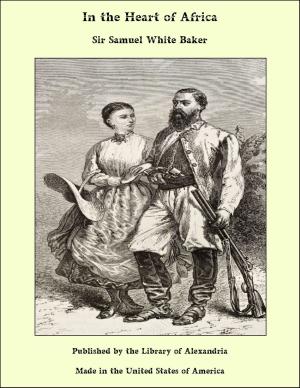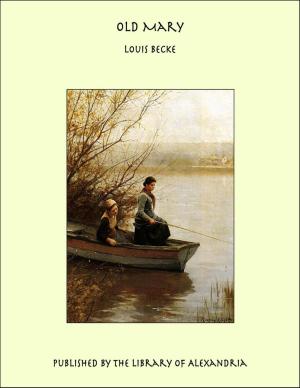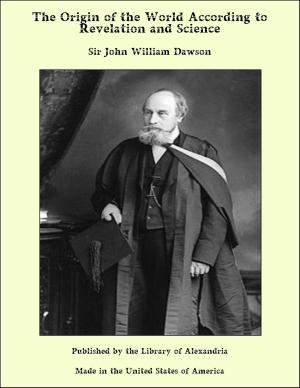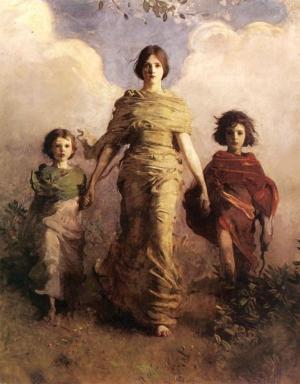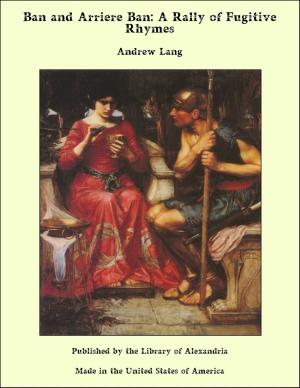Indian Biography: An Historical Account of Those Who Have Been Distinguished Among the North American Natives as Orators, Warriors, Statesmen and Other Remarkable Characters (Complete)
Nonfiction, Religion & Spirituality, New Age, History, Fiction & Literature| Author: | Benjamin Bussey Thatcher | ISBN: | 9781465616111 |
| Publisher: | Library of Alexandria | Publication: | March 8, 2015 |
| Imprint: | Language: | English |
| Author: | Benjamin Bussey Thatcher |
| ISBN: | 9781465616111 |
| Publisher: | Library of Alexandria |
| Publication: | March 8, 2015 |
| Imprint: | |
| Language: | English |
It is well known that the valiant Captain was wont to express his opinions in strong terms, but he has rarely been detected in any great inaccuracy. And the circumstances of this case are in his favor; for it has been truly remarked, that the Powhatan confederacy inhabited a country upon which nature had bestowed singular advantages. Unlike the natives of more northern region, they suffered little from cold, and less from famine. Their settlements were mostly on the banks of James, Elizabeth, Nansamond, York and Chickahominy rivers, all which abounded with the most delicious fish and fowl. In his Potomac expedition, Smith met with "that aboundance of fish, lying so thicke with their heads above the water, as for want of nets, (our barge driving amongst them) we attempted to catch them with a frying-pan." And though the captain naturally enough concluded, after some trials, that this was a poor instrument for his purpose, he persists in adding that "neither better fish, more plentie, nor more varietie for small fish had any of vs euer seene in any place so swimming in the water—but they are not to be caught with frying-pans." He found the stingrays in such abundance among the reeds at the mouth of the Rappahannoc, that he amused himself by nailing them to the ground with his sword: "and, thus," he observes, "we tooke more in owne houre than we could eate in a day." Vast quantities of corn, too, yearly rewarded even the simple agriculture of the Indians, bestowed as it was upon the best portions of a generous soil. "Great heapes" of it were seen at Kekoughtan, "and then they brought him venison, turkies, wild fowle, bread and what else they had." In none of his captivities, or his visits among the natives, did the captain ever suffer from want of food; and he often brought off his boat and his men laden with plenty. The Nansamonds gave him 400 baskets-full at one time. The Chickahominies, though they complained extremely of their own wants, yet "fraughted" him with hundred bushels. The woods furnished another inexhaustible supply both of fruits and game; so that, on the whole, it is very easy to believe, that a considerably greater population than Mr. Jefferson's estimate supposes, might have subsisted without much difficulty on the soil they are known to have occupied. "And now the winter [of 1607—8] approaching," we are informed in another passage, "the rivers became so covered with swans, geese, duckes and cranes, that we daily feasted with good bread, Virginia pease, pumpions and putchamins, [FN] fish, fowle, and diverse sorts of wild beasts, so fast as we could eate them; so that none of our Tuftaffaty humourists desired to go for England." On one occasion, when Smith undertook an exploring tour into the interior, late in the season, a violent storm obliged him and his men to keep Christmas among the savages. "And we were never more merry," he relates, "nor fed on more plenty of good oysters, fish, flesh, wild fowle and good bread, nor ever had better fires in England." In a peaceful interval of a few months, which occurred during the next season, the Indians are said to have brought into Jamestown more than a hundred deer and other beasts daily for several weeks.
It is well known that the valiant Captain was wont to express his opinions in strong terms, but he has rarely been detected in any great inaccuracy. And the circumstances of this case are in his favor; for it has been truly remarked, that the Powhatan confederacy inhabited a country upon which nature had bestowed singular advantages. Unlike the natives of more northern region, they suffered little from cold, and less from famine. Their settlements were mostly on the banks of James, Elizabeth, Nansamond, York and Chickahominy rivers, all which abounded with the most delicious fish and fowl. In his Potomac expedition, Smith met with "that aboundance of fish, lying so thicke with their heads above the water, as for want of nets, (our barge driving amongst them) we attempted to catch them with a frying-pan." And though the captain naturally enough concluded, after some trials, that this was a poor instrument for his purpose, he persists in adding that "neither better fish, more plentie, nor more varietie for small fish had any of vs euer seene in any place so swimming in the water—but they are not to be caught with frying-pans." He found the stingrays in such abundance among the reeds at the mouth of the Rappahannoc, that he amused himself by nailing them to the ground with his sword: "and, thus," he observes, "we tooke more in owne houre than we could eate in a day." Vast quantities of corn, too, yearly rewarded even the simple agriculture of the Indians, bestowed as it was upon the best portions of a generous soil. "Great heapes" of it were seen at Kekoughtan, "and then they brought him venison, turkies, wild fowle, bread and what else they had." In none of his captivities, or his visits among the natives, did the captain ever suffer from want of food; and he often brought off his boat and his men laden with plenty. The Nansamonds gave him 400 baskets-full at one time. The Chickahominies, though they complained extremely of their own wants, yet "fraughted" him with hundred bushels. The woods furnished another inexhaustible supply both of fruits and game; so that, on the whole, it is very easy to believe, that a considerably greater population than Mr. Jefferson's estimate supposes, might have subsisted without much difficulty on the soil they are known to have occupied. "And now the winter [of 1607—8] approaching," we are informed in another passage, "the rivers became so covered with swans, geese, duckes and cranes, that we daily feasted with good bread, Virginia pease, pumpions and putchamins, [FN] fish, fowle, and diverse sorts of wild beasts, so fast as we could eate them; so that none of our Tuftaffaty humourists desired to go for England." On one occasion, when Smith undertook an exploring tour into the interior, late in the season, a violent storm obliged him and his men to keep Christmas among the savages. "And we were never more merry," he relates, "nor fed on more plenty of good oysters, fish, flesh, wild fowle and good bread, nor ever had better fires in England." In a peaceful interval of a few months, which occurred during the next season, the Indians are said to have brought into Jamestown more than a hundred deer and other beasts daily for several weeks.




